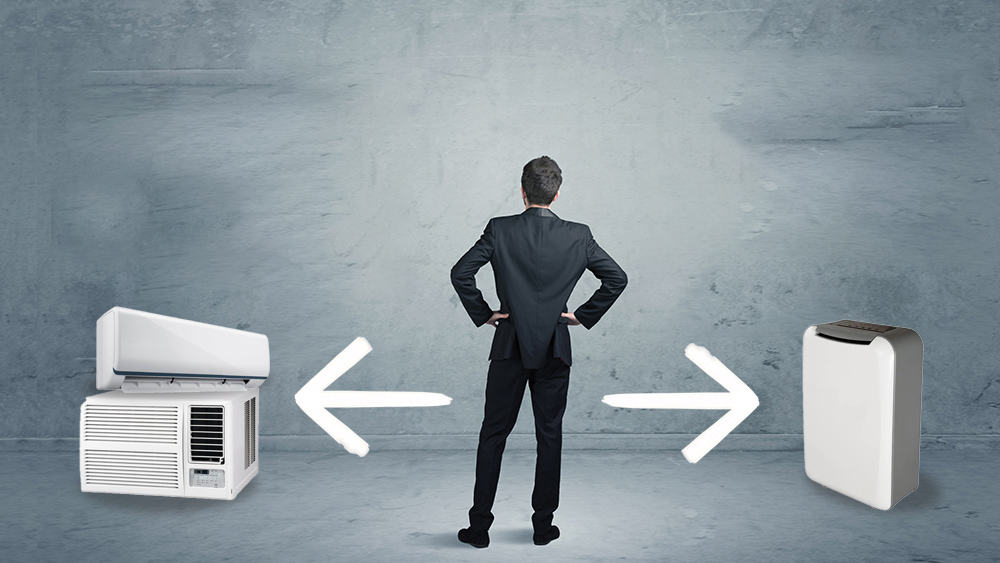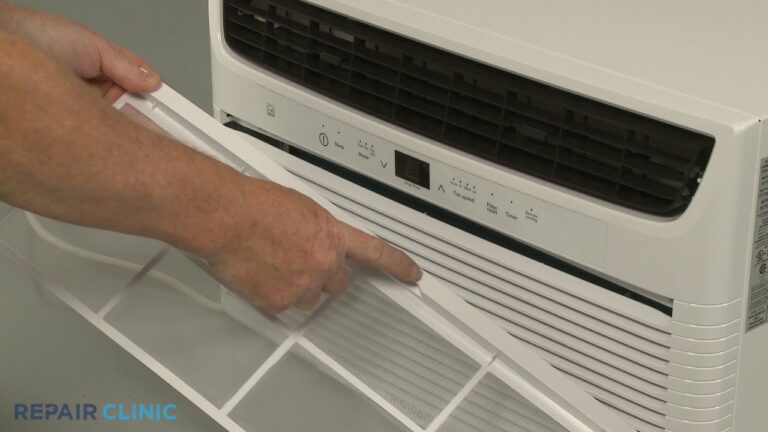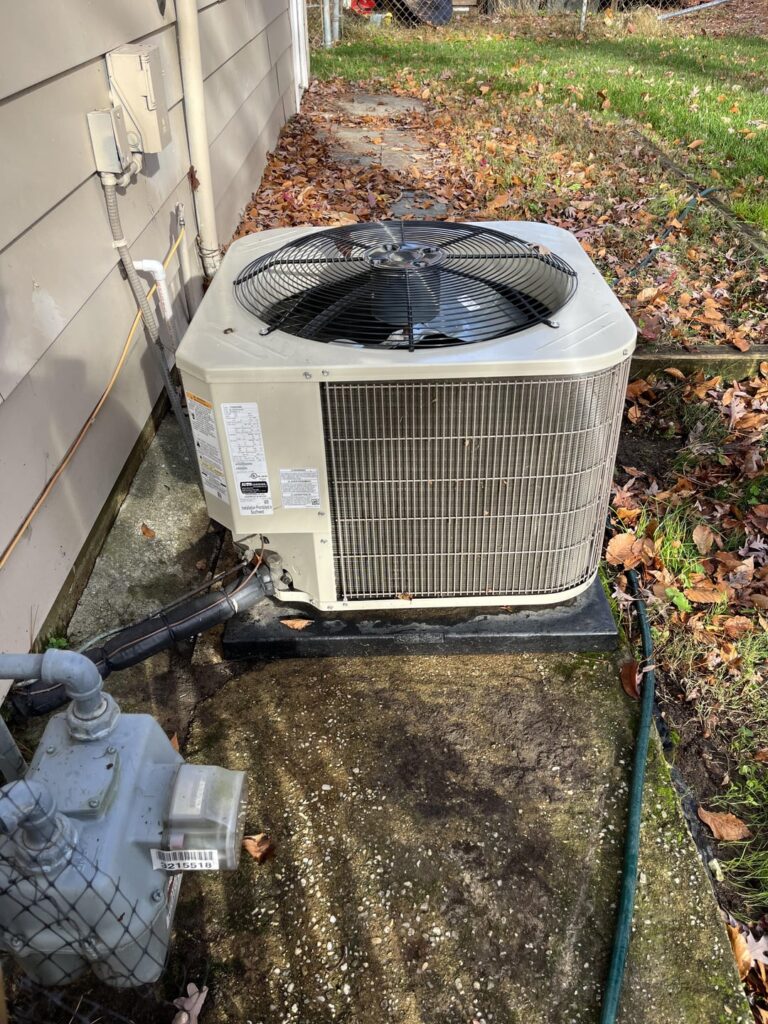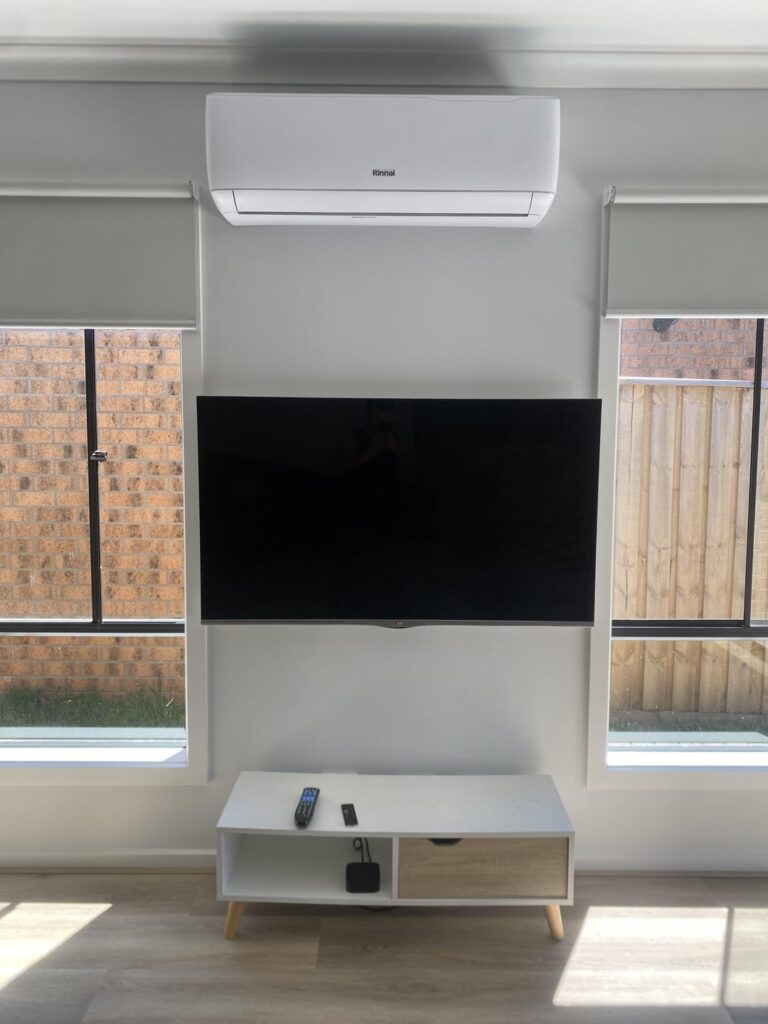Can I Use My Air Conditioner As A Dehumidifier? Expert Insights
Yes, you can use your air conditioner as a dehumidifier. Air conditioners naturally remove moisture from the air.
Air conditioners help maintain indoor comfort by cooling and dehumidifying the air. They function by drawing in warm air, cooling it, and then releasing it back into the room. This process removes humidity, making the environment more comfortable. A dehumidifier specifically targets moisture removal, but an air conditioner also performs this task efficiently.
Understanding this dual function can help optimize indoor air quality. Proper use of your air conditioner can reduce humidity levels, making living spaces more comfortable. This dual capability makes air conditioners versatile appliances for maintaining indoor climate control.
Introduction To Air Conditioners And Dehumidifiers
Understanding the basics of air conditioners and dehumidifiers can help you decide their uses. These devices control indoor air quality and provide comfort.
Basic Concepts
Air conditioners and dehumidifiers share common features. Both devices use similar components to regulate air. They remove moisture and heat from the air.
Air conditioners cool the air in a room. They use a refrigeration cycle. Dehumidifiers focus on reducing humidity levels. They make the air dry and comfortable.
Primary Functions
The primary function of an air conditioner is to cool the air. It does this by removing heat and moisture.
A dehumidifier’s primary function is to reduce humidity. It removes excess moisture from the air.
| Device | Primary Function |
|---|---|
| Air Conditioner | Cool the air |
| Dehumidifier | Reduce humidity |
Using an air conditioner as a dehumidifier is possible. It removes moisture while cooling the air.
Key Points to Remember:
- Air conditioners cool and dehumidify.
- Dehumidifiers reduce moisture.
How Air Conditioners Work
Understanding how air conditioners work helps determine if they can dehumidify. They play a crucial role in cooling and managing indoor air quality.
Cooling Mechanism
Air conditioners cool the air using a refrigeration cycle. The cycle involves a series of steps:
- Compressor: Compresses refrigerant, raising its temperature.
- Condenser Coils: Hot refrigerant passes through coils, releasing heat outside.
- Expansion Valve: Lowers refrigerant pressure, causing it to cool.
- Evaporator Coils: Cool refrigerant absorbs heat from indoor air.
- Fan: Blows cooled air back into the room.
This cycle repeats, maintaining a comfortable indoor temperature.
Humidity Control
Air conditioners can reduce humidity as they cool. When warm air passes over the evaporator coils, moisture condenses on the coils.
- This moisture is then collected in a pan or drained outside.
- Reducing humidity levels makes the air feel cooler and more comfortable.
Using an air conditioner as a dehumidifier is possible but less efficient. Dehumidifiers are designed specifically to remove moisture from the air. They do so more effectively and with less energy.
How Dehumidifiers Work
Understanding how dehumidifiers work is essential if you want to use your air conditioner as a dehumidifier. Dehumidifiers remove excess moisture from the air, making your home more comfortable.
Moisture Removal Process
Dehumidifiers extract moisture from the air through a simple process. The air passes over cold coils. This cools the air and condenses the moisture. The water drips into a collection tank. The dry air then passes over warm coils and is released back into the room.
Key Components
Dehumidifiers have several key components that make them effective:
- Compressor: Compresses refrigerant, making the coils cold.
- Evaporator Coils: Cools the air and condenses moisture.
- Fan: Circulates air over the coils.
- Collection Tank: Stores the condensed water.
- Humidistat: Measures humidity and controls the unit.
Each component plays a vital role in the dehumidification process. A table below summarizes these components:
| Component | Function |
|---|---|
| Compressor | Compresses refrigerant, cooling the coils. |
| Evaporator Coils | Cools air and condenses moisture. |
| Fan | Circulates air over the coils. |
| Collection Tank | Stores the condensed water. |
| Humidistat | Measures humidity and controls the unit. |
Knowing these components helps you understand how dehumidifiers work. This knowledge can assist in using your air conditioner as a dehumidifier effectively.

Credit: m.youtube.com
Comparing Air Conditioners And Dehumidifiers
Can you use your air conditioner as a dehumidifier? Let’s compare air conditioners and dehumidifiers. This helps you understand their differences better.
Efficiency Differences
Air conditioners and dehumidifiers have different efficiencies. An air conditioner cools your room and removes some moisture. A dehumidifier focuses only on removing moisture from the air.
- Air Conditioners: Cools and dehumidifies, but not very efficient at dehumidifying.
- Dehumidifiers: Removes moisture more efficiently but does not cool the air.
Think about what you need more. Cooling or removing moisture?
Cost Implications
Costs can vary between air conditioners and dehumidifiers. Here’s a quick look:
| Device | Initial Cost | Operating Cost |
|---|---|---|
| Air Conditioner | Higher | Higher |
| Dehumidifier | Lower | Lower |
Air conditioners are costlier to buy and run. Dehumidifiers are cheaper and save on energy bills.
Using Air Conditioners As Dehumidifiers
An air conditioner can cool your home. But can it also act as a dehumidifier? Many people wonder if they can use their AC unit to remove excess moisture. Let’s explore this idea in detail.
Feasibility
Air conditioners have a dual function. They cool the air and remove moisture. This happens naturally during the cooling process. Moisture in the air condenses on the cold coils of the AC unit.
But using an AC as a dehumidifier is not always feasible. Standard air conditioners are not built for heavy dehumidification. They are designed to cool the air first and foremost.
| Aspect | Air Conditioner | Dehumidifier |
|---|---|---|
| Primary Function | Cooling | Moisture Removal |
| Efficiency | Moderate | High |
| Energy Consumption | Higher | Lower |
Performance Considerations
Using an air conditioner as a dehumidifier has some performance issues. First, the unit must run for long periods to remove significant moisture. This can lead to increased energy costs.
Second, the air conditioner may not reach the desired humidity level. Specialized dehumidifiers are more efficient. They are designed specifically for this task.
Here’s a quick comparison:
- An air conditioner removes moisture as a by-product.
- A dehumidifier focuses on reducing humidity.
- Energy consumption is higher with an air conditioner.
In summary, an air conditioner can help reduce humidity. But it is not the most efficient tool for the job. Consider a dedicated dehumidifier for better results.
Benefits And Drawbacks
Using your air conditioner as a dehumidifier has its pros and cons. This section explores the advantages and potential issues you might face. Understanding these will help you make an informed decision.
Advantages
There are several benefits to using your air conditioner as a dehumidifier. Here are some of the key advantages:
- Cost-effective: No need to buy a separate dehumidifier.
- Energy-efficient: Modern AC units often have dehumidifying features.
- Space-saving: One device does the job of two.
Using your AC this way can save money and space. It can also be more efficient overall.
Potential Issues
There are some drawbacks to consider. Here are a few potential issues:
- Limited capacity: AC units may not dehumidify large spaces well.
- Increased wear: Using your AC as a dehumidifier can cause more wear and tear.
- Temperature control: AC units may cool the room too much while dehumidifying.
These issues could impact the lifespan of your AC. They may also affect comfort levels in your home.
| Aspect | Advantage | Potential Issue |
|---|---|---|
| Cost | Save money on extra devices | Potential higher maintenance costs |
| Space | One device for two functions | Limited space dehumidification |
| Efficiency | Energy-efficient modern units | Increased wear and tear |
Expert Opinions
Many homeowners ask: Can I Use My Air Conditioner As A Dehumidifier? Let’s delve into what the experts have to say. Understanding their insights can help you make an informed decision. Here’s what the experts reveal.
Industry Insights
Air conditioning professionals agree on one thing. AC units do remove some humidity from the air. They are designed to cool and dehumidify simultaneously. But this is not their primary function.
Experts from the HVAC industry provide detailed insights:
| Function | Air Conditioner | Dehumidifier |
|---|---|---|
| Primary Purpose | Cooling | Removing Humidity |
| Efficiency | Moderate | High |
| Energy Use | Higher | Lower |
Using an air conditioner as a dehumidifier can be less energy-efficient. Experts suggest using dedicated dehumidifiers for optimal results.
User Experiences
Real users share their experiences with using air conditioners as dehumidifiers. Their stories reveal the effectiveness and challenges.
- John, a homeowner: “My AC does reduce humidity, but not enough. I still feel dampness.”
- Emily, a renter: “I use my AC for both cooling and dehumidifying. It works, but it’s not perfect.”
- Michael, an office worker: “Our office AC helps with humidity, but we also use dehumidifiers.”
Most users find that while AC units help, they do not fully replace dedicated dehumidifiers. Both experts and users recommend using a dedicated dehumidifier for best results.
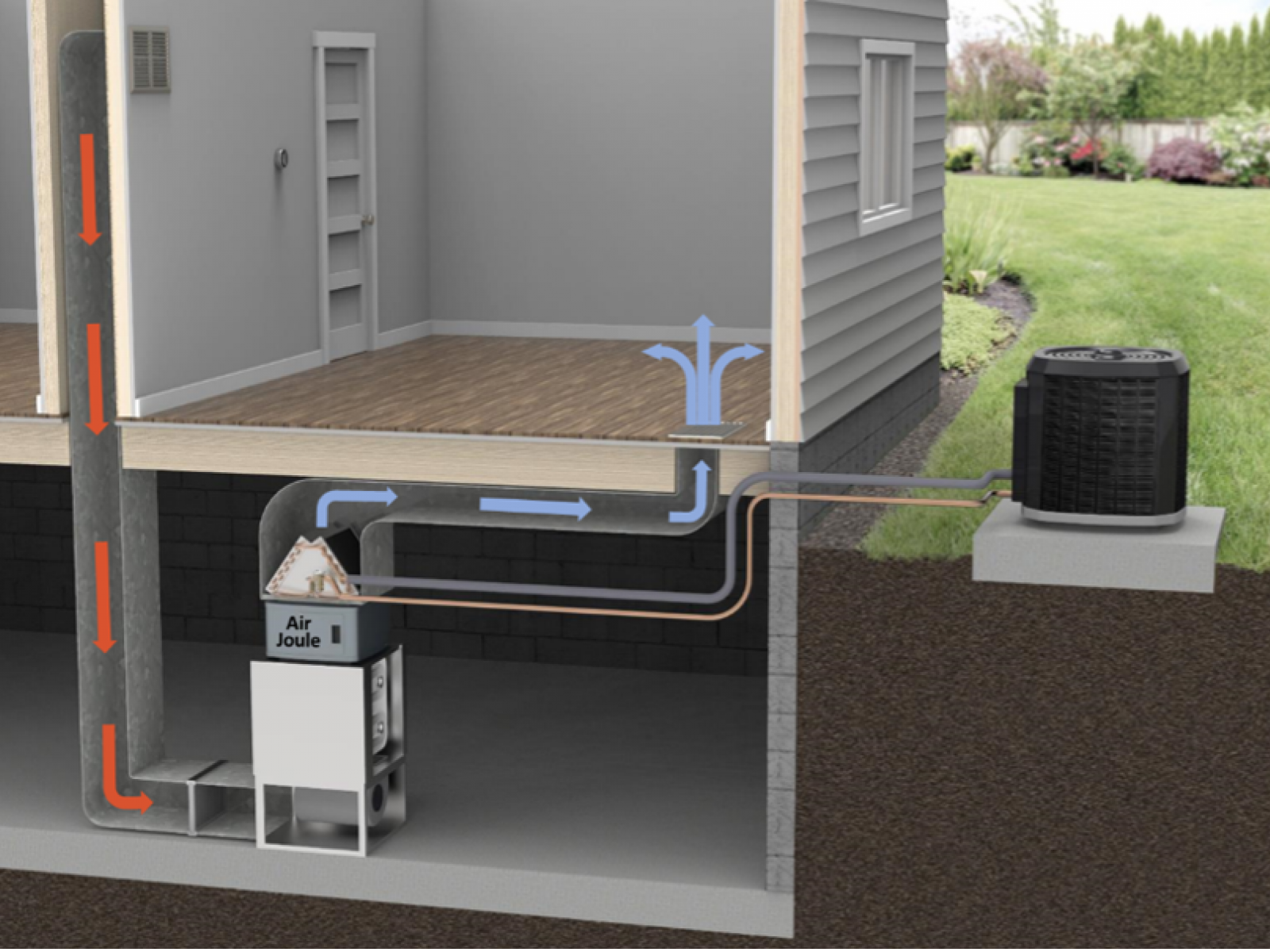
Credit: www.pnnl.gov
Conclusion And Recommendations
Using your air conditioner as a dehumidifier can be practical. This section will summarize the key points and provide recommendations.
Final Thoughts
Your air conditioner can help reduce humidity levels. It cools the air and removes moisture. This dual function makes it a useful home appliance. Yet, it may not be as efficient as a dedicated dehumidifier. The primary role of an AC is to cool your space. Dehumidification is a secondary function.
Best Practices
Follow these tips for optimal results:
- Set your AC to “dry mode” if available. This enhances dehumidification.
- Maintain your AC unit regularly. Clean filters and coils ensure efficiency.
- Keep windows and doors closed. This prevents outside moisture from entering.
- Use a hygrometer to monitor humidity levels. Aim for 30-50% indoor humidity.
- Consider using a dedicated dehumidifier for high humidity areas. This ensures better moisture control.
| Feature | Air Conditioner | Dehumidifier |
|---|---|---|
| Main Function | Cooling | Dehumidifying |
| Dehumidifying Efficiency | Moderate | High |
| Energy Consumption | Higher | Lower |
| Cost | Higher | Lower |
Choosing the right appliance depends on your needs. For high humidity areas, a dedicated dehumidifier is better. For moderate needs, your AC can suffice.

Credit: www.reddit.com
Frequently Asked Questions
How Do I Use My Ac As A Dehumidifier?
Set your AC to “dry mode” or “dehumidify” setting. Ensure windows and doors are closed. Adjust the temperature to a comfortable level. Clean the air filters regularly for optimal performance.
Is An Air Conditioner An Effective Dehumidifier?
An air conditioner can act as a dehumidifier. It removes moisture while cooling the air. However, for significant humidity control, a dedicated dehumidifier is more effective.
Should I Dehumidify Using Ac?
Yes, you can dehumidify using an AC. Air conditioners remove moisture while cooling the air. This helps reduce humidity levels indoors. Ensure regular maintenance for optimal performance.
Conclusion
Using your air conditioner as a dehumidifier can be effective. It removes moisture and cools your space simultaneously. Ensure your AC is properly maintained for best results. Consider a dedicated dehumidifier for high humidity levels. This ensures optimal comfort and energy efficiency.
Enjoy a comfortable, moisture-free home environment.

